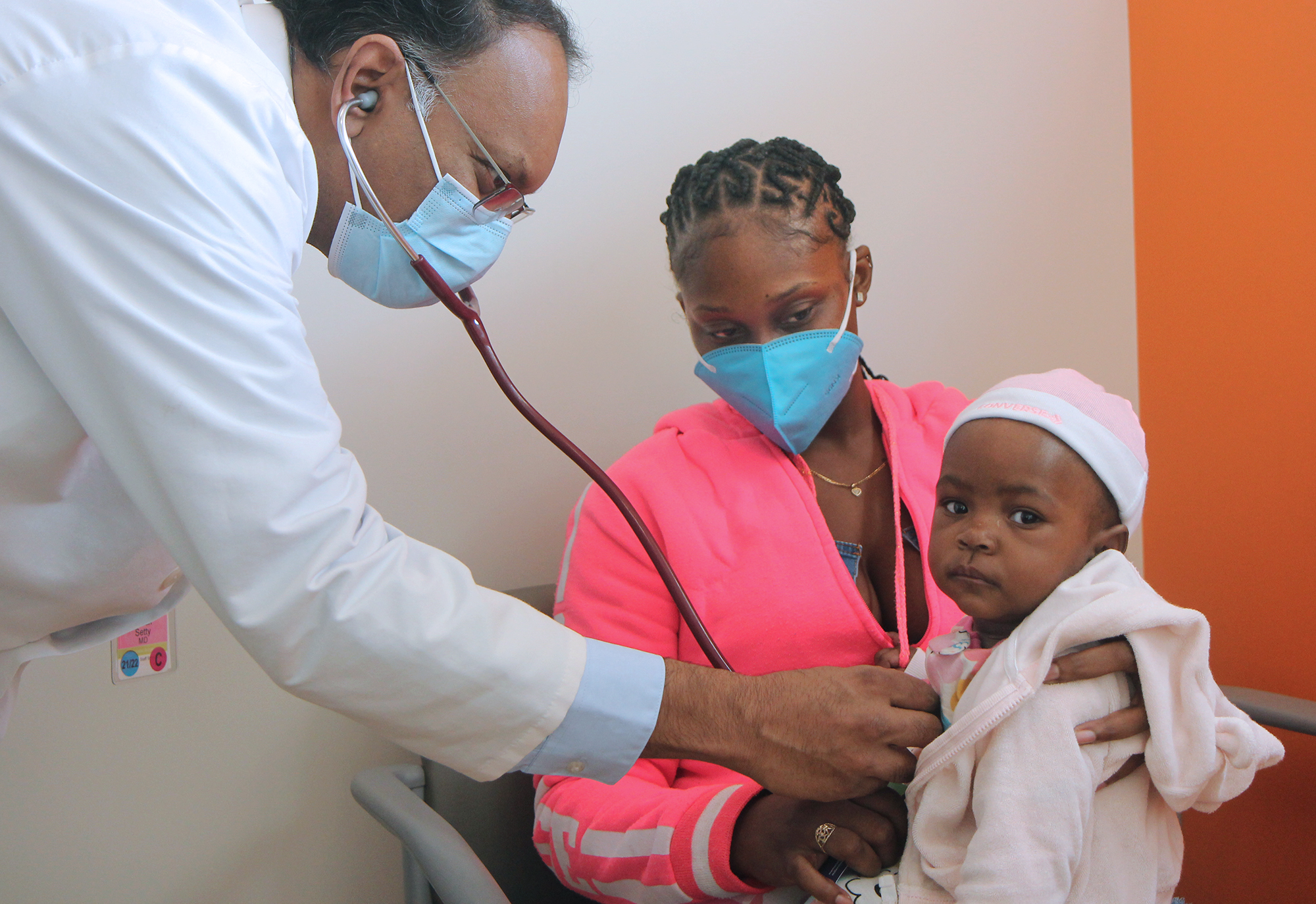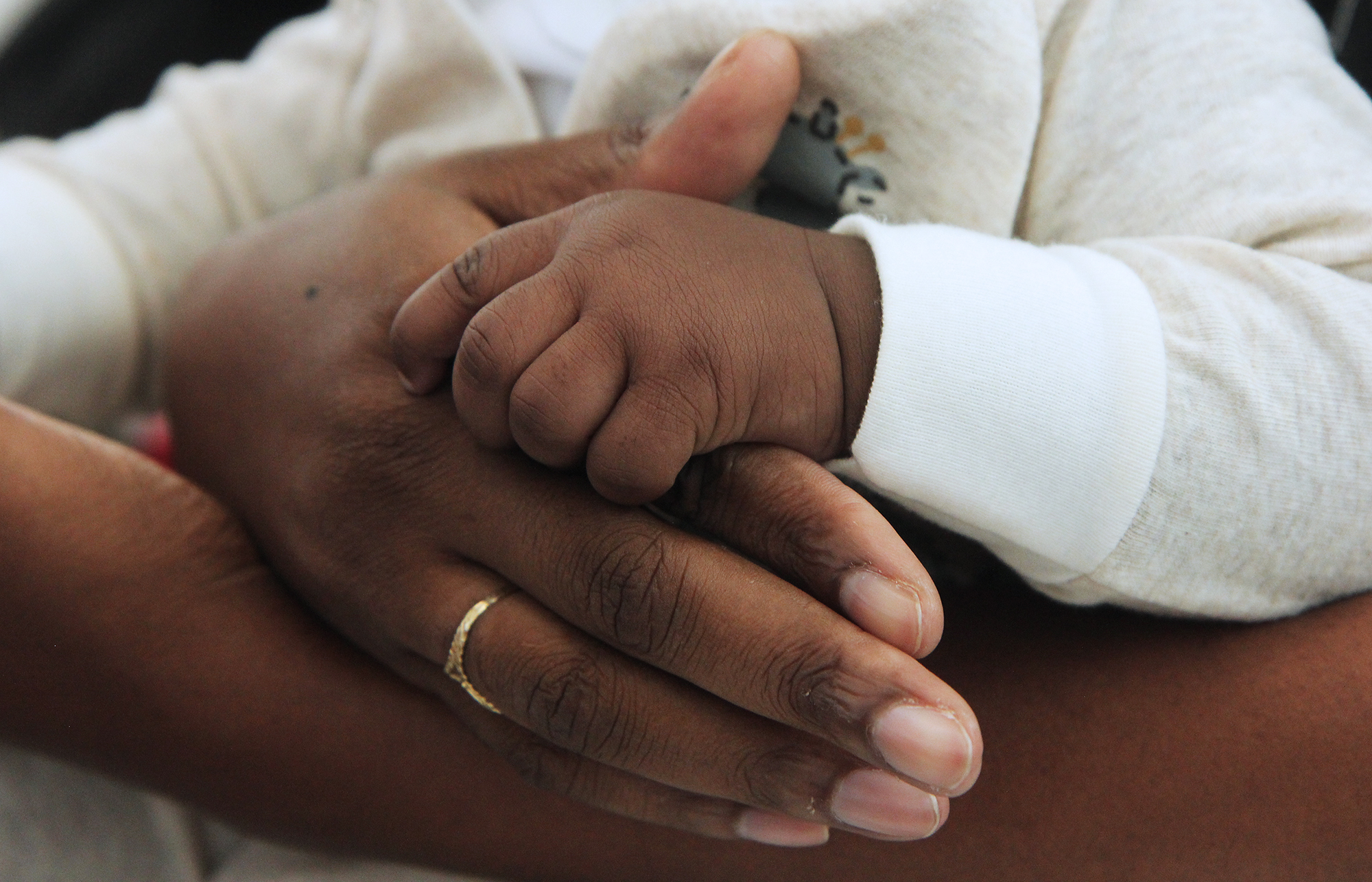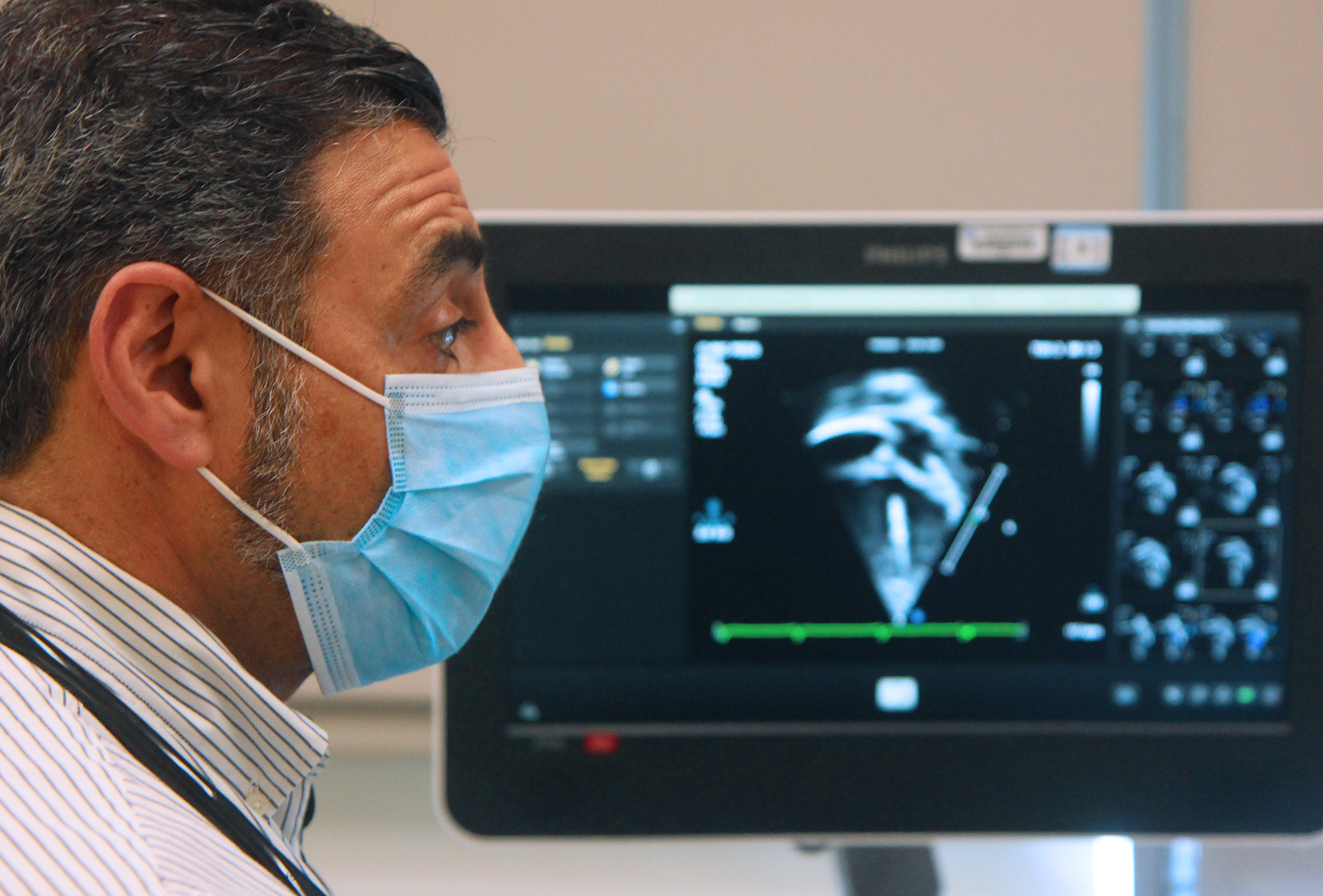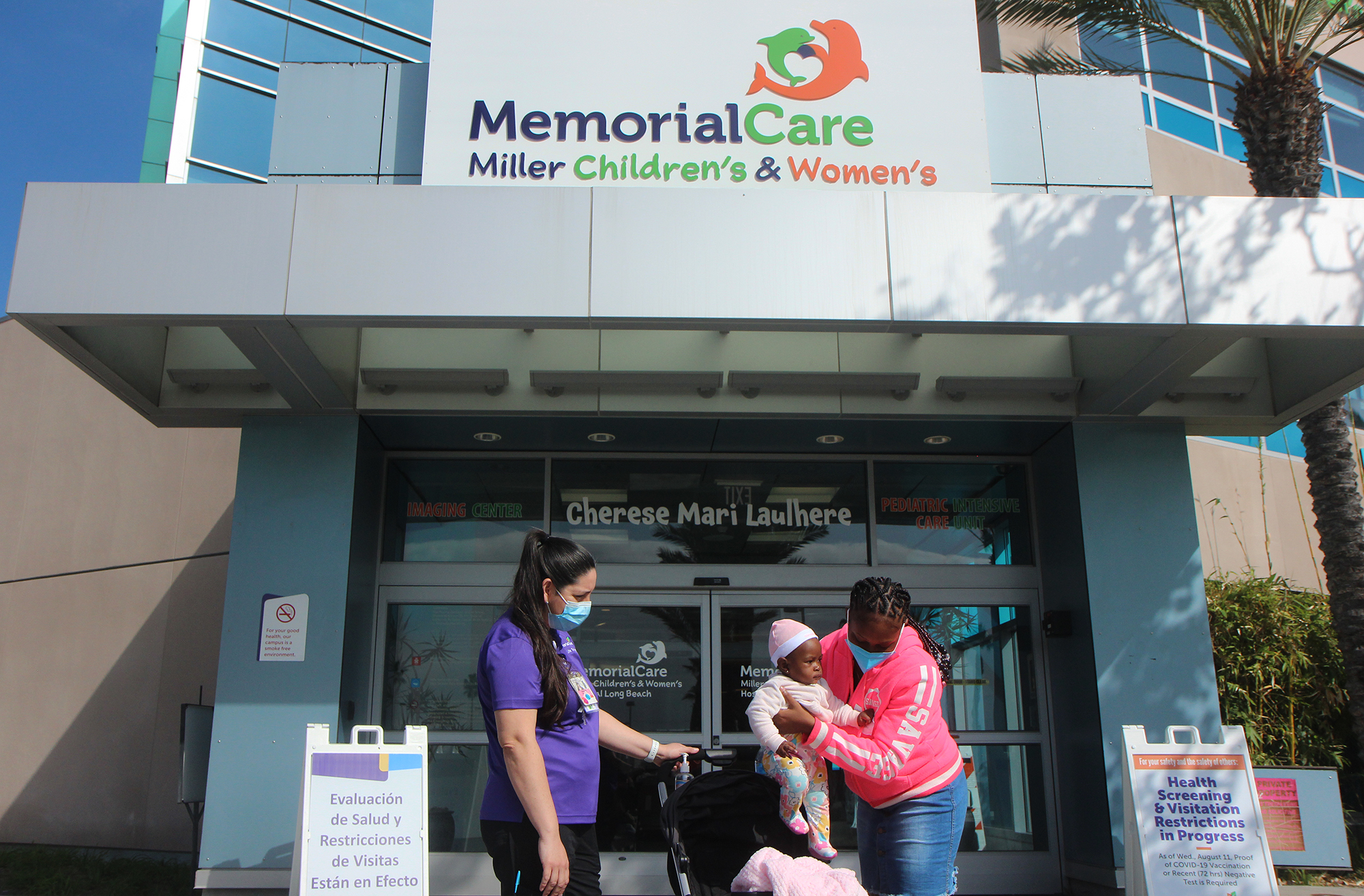
Zhavia Hadaway, a 6-month-old from Barbados, is about to receive a life-saving surgery at Long Beach’s Miller Children’s & Women’s Hospital.
Zhavia’s surgery will be the first under a new partnership between the hospital’s Heart Institute and the World Pediatric Project. The program, which brings patients from less developed countries directly to doctors for treatment, flips the old, pre-coronavirus model—doctors traveling around the world, providing pro bono care to those in need—on its head.
Zhavia was born with a fatal heart defect. Her heart surgery is scheduled for Tuesday morning.
“I’m confident. We pray a lot, I trust God,” her mother, Shenica Hadaway, said last week. “I’m very happy and grateful.”
Zhavia’s condition, Tetralogy of Fallot, causes oxygen-poor blood to flow out of the heart and into the rest of the body. The issue is caused due to a hole in the wall between the two lower heart chambers, along with several other defects of the heart.

Symptoms of Tetralogy of Fallot include a bluish skin color, problems eating, failure to gain weight, development delays and episodes of passing out.
Cases of Tetralogy of Fallot vary in severity. Zhavia’s case is moderate to severe, according to Dr. Saar Danon. If left untreated, she would likely be OK for a few more months but eventually become more and more blue due to a lack of oxygen. Ultimately, she would likely not survive into late childhood, Danon said.
“It is a very risky procedure, a major surgery—they have to open up the chest and the surgeon needs to open up the heart,” Dr. Babak Rahimi said. “On a 6-month-old baby, the heart is extremely small, and the surgeon must be very careful and delicate.”

Danon also acknowledged the challenges with any heart surgery, particularly on a small child, but added that Tuesday’s procedure has a 98% success rate.
“Our expectation is that the baby should have a good outcome,” Danon said.
The World Pediatric Project was founded in 2002 and connects families in the Caribbean and Central America to children’s hospitals when services are not available. In the case of the Hadaway family, Barbados does not have a pediatric surgeon capable of performing the life-saving procedure.
The organization has helped over 15,000 children in its nearly 20 years, according to Senior Program Director Kate Corbett.
“Children suffer and die each day from illnesses and conditions that are routinely treated here in the United States,” Corbett said, adding that those children deserve the same care as those born in the states. “That’s why we work hard every day … to provide that hope and healing to every child that we can.”
Shenica and Zhavia are staying at Ronald McDonald House while in the U.S., with all meals and transportation provided by WPP. The medical services are provided by the hospital and medical staff at no cost.
“It’s sad to know that a lot of the kids can’t get the help they need,” Shenica said. “But I was lucky enough to come across the World Pediatric Project and they were willing to help.”

